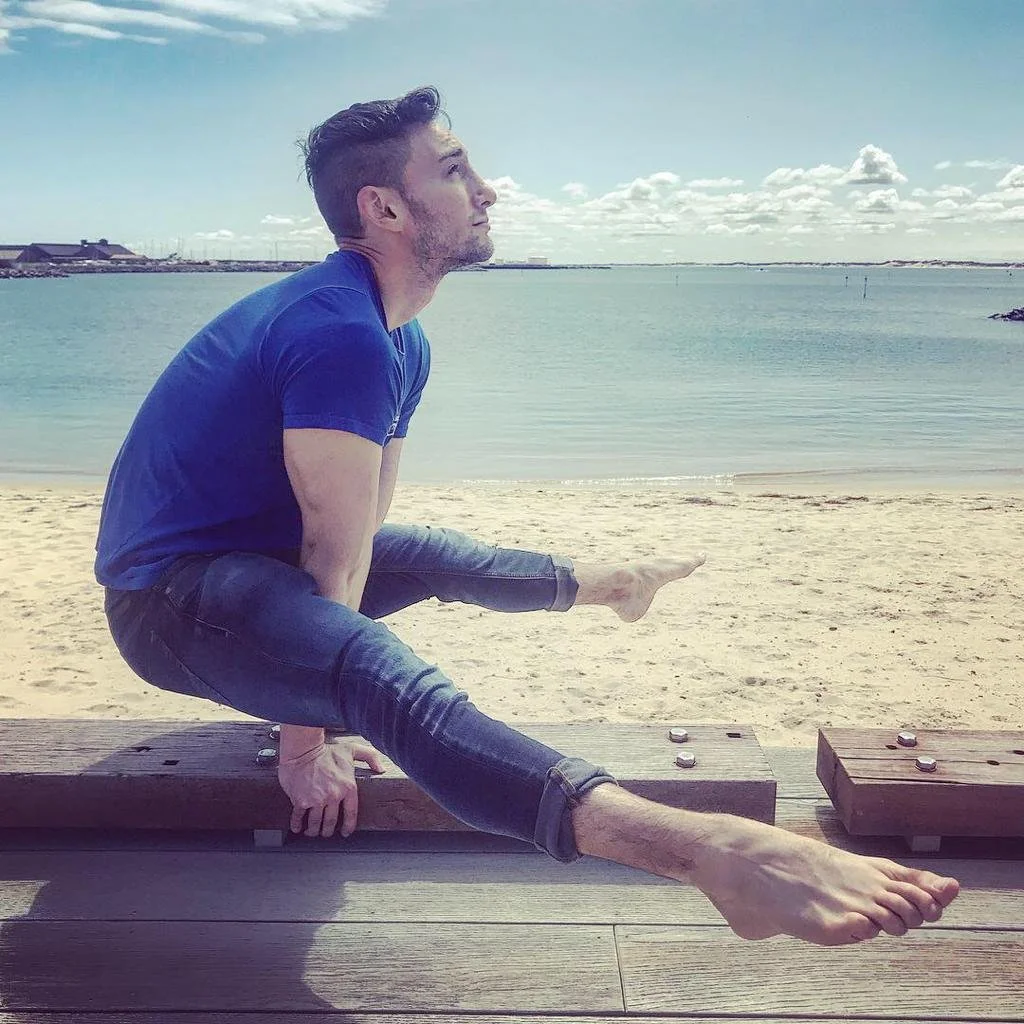
About Michael Spertus, MD, CPC:
Dr. Michael Spertus is a physician, board-certified in Family Medicine, Integrative Medicine, and Lifestyle Medicine. He is also a certified professional coach.
Dr. Spertus believes that integrative approaches that treat the whole person are essential to achieving true health and wellness. His passion is in facilitating an individual’s inner capacity to heal, guiding the light within us all to shine. Accordingly, Dr. Spertus strives to incorporate inclusive, high touch, non-pharmacological methods whenever possible. He balances this approach with conventional medicine and recommending further outside evaluation when needed.
Dr. Spertus has specific interest and experience in mind-body medicine, integrative mental health, pain medicine, general Integrative Medicine, medical acupuncture, lifestyle and nutrition, LGBTQIA+ matters, personal coaching, burnout, education, and leadership. Dr. Spertus is also an accomplished speaker, and he has presented at several national and local conferences and meetings.
Medical Training, Experience, and Certifications
Brown University: Sc.B. in Human Biology-Brain and Behavior, Honors
University of Miami Miller School of Medicine: M.D.
Columbia University-New York Presbyterian Hospital: Residency in Family Medicine; Chief Resident;
Mount Sinai Icahn School of Medicine-Institute for Family Health: Fellowship in Integrative Medicine
Harvard Medical School-Mount Auburn Hospital: Fellowship in Health Professional Education
University of California-Irvine: Fellowship in Primary Care Psychiatry
Clinical Instructor, Harvard Medical School (former); Medical Director (former) and Education Director (former), Marino Center for Integrative Health (Cambridge, MA)
Assistant (Voluntary) Professor, University of Miami Miller School of Medicine (current); Consultant Physician in Whole Health for chronic pain at the Miami VA Healthcare System (current)
Chief Clinician Well-Being Officer (CWO) for the Miami VA Healthcare System, an executive strategic position promoting clinician thriving and burnout mitigation (current)
American Academy of Family Physicians: Degree of Fellow (FAAFP)
Board Certifications: American Board of Family Physicians, American Board of Integrative Medicine, American Board of Lifestyle Medicine
Select Integrative Medicine Modality and Mind-Body Training and Experience
Medical Acupuncture (Harvard Medical School, University of Miami, University of New England); Faculty and Teaching Assistant for the AcuMed University of New England acupuncture course for physicians
Mindfulness-based interventions and psychotherapies: Certificate in Mindfulness and Psychotherapy from the Institute for Mindfulness and Psychotherapy, mindfulness-based cognitive therapy (MBCT), mindfulness for living well/mindful behavior change from Cambridge Health Alliance-Harvard Medical School
Clinical Hypnosis (focus on medical hypnosis and chronic pain), certified by the American Society of Clinical Hypnosis
Biofeedback (Heartmath)
Pain Reprocessing Therapy
Cognitive Behavioral Therapy (CBT), including advanced training in CBT for insomnia (CBT-I)
Psychedelic Medicine: Certificate Program in Psychedelic-Assisted Therapies and Research, California Institute of Integral Studies (CIIS); MAPS/Lykos training in MDMA-Assisted Therapy
Plant-Based Nutrition Certificate (Cornell University, T. Colin Campbell Center for Nutrition Studies)
Institute for Functional Medicine trainings
Professional and health-related coaching skills, Certified Professional Coach (FIA)
Yoga: Registered Yoga Teacher-200h with Yoga Alliance
Yoga Nidra: iRest Level 2 practitioner

A Personal Note:
Why Integrative Medicine? Integrative Medicine, as defined by the American Board of Integrative Medicine (ABOIM) and the Consortium of Academic Health Centers for Integrative Medicine, is the practice of medicine that reaffirms the importance of the relationship between practitioner and patient, focuses on the whole person, is informed by evidence, and makes use of all appropriate therapeutic approaches, healthcare professionals, and disciplines to achieve optimal health and healing. In the past, it was often referred to as complementary and alternative medicine (CAM), but this has evolved to reflect the above aspects that combine the possibilities of conventional medicine AND holistic, traditional, and complementary medicine; these are not alternative or competing with each other in this framework. More recently, the term Whole Health, popularized by the Department of Veterans Affairs, has been used as a model to further clarify this framework and approach and emphasizing the lifestyle, community, and systemic factors that relate to one’s health. Below, I will describe my personal journey on my path toward integrative medicine.
When I entered medical school, I knew I wanted to be in a profession that blended my love of science, curiosity, and my passion for service toward others. At the time, I was naive about the medical system itself. I was unaware how so often our current mainstream medical model, while often well-intentioned, tends toward reactive, acute, sick care rather than true health care. This is a system that emphasizes productivity, industry, and profits above the patient (who knows themself best) and above the sacred relationship between the patient and their physician.
In my last year of college, I found myself surprisingly (to me, at the time) unwell. I began having daily headaches that became increasingly severe in intensity. I began to have increasing fatigue, “brain fog,” sleeping issues, digestive issues, and rashes. My muscles ached, my joints ached. I couldn’t focus on my work, and I even missed a few assignments, even though school and my memory were supposed to be the areas I most excelled in! I eventually came to carry several different diagnoses (fibromyalgia, chronic fatigue syndrome, IBS, chronic daily headaches, TMJ-D, migraines, myofascial pain syndrome, to name a few).
I became obsessed with getting better, scouring the internet, booking doctor appointments, doing PT, getting mouthguards. Every time I went to an appointment, I assumed I would finally have the answer, the solution, as though my health were a math problem to be solved. I assumed that with all our high tech care, surely all these experienced and caring doctors would be able to help me. Unfortunately, nothing and nobody seemed to help much. I began to feel dismissed and that I was a “difficult patient,” as though I were doing something wrong by having these issues and not getting better. I could sense that these well-meaning professionals also wanted me to be better, but I did not know that the mainstream medical model and its current areas of focus simply lacked the understanding and tools for me to heal. I became depressed and increasingly anxious, preoccupied with my current health and the hopeless sense that I might never get better.
Eventually, I found my way to acupuncture, and later to an academic craniofacial pain center that focused on interdisciplinary holistic care. These events started me on a path that would forever change me and my outlook on health and healing. I began to realize the great role stress, lifestyle, and past experiences were having on me, even though I hadn’t considered myself a “stressed out” person before. I learned breathing techniques and acupuncture. In medical school, I began a yoga practice, which I fell in love with. The tools and therapies I received helped a lot, and I was able to successfully start medical school, yet I still continued with residual headaches, GI disturbances, and on and off depressed mood. Something was still stuck. Given my positive personal experience with acupuncture, I decided to enroll in an acupuncture course during my first year or medical school, which was quite the undertaking as a first year medical student learning anatomy; yet, taking this course was one of the best things I ever have done. It was incredibly refreshing in its holistic approach and a great complement to the separative, organ-system approach I was learning in medical school, and I knew that I would only continue along this path. One day, I went up to the coordinator, who was also trained in neuro-linguistic programming (NLP), and I asked her advice on what I had been experiencing. She used some NLP strategies with acupressure and muscle testing, and what happened next has stayed with me ever since. I immediately realized what was keeping me from getting better. It was not a physical issue that remained, but a spiritual wound. I had not fully accepted myself for who I am, and I had not yet come out or embraced my identity as a gay man.
While it took some time even after this revelation, I was able to begin improving my lifestyle, prioritizing my diet, exercise and physical activity, and sleep. I began to access my spiritual side through yoga and meditation. Eventually, I decided—concurrently—to come out as gay and to seek mental health treatment. While it didn’t happen overnight, my health quickly began to improve, and my life has changed. I began to access the inner light and healing intelligence that were already inside of me; I had to let them get unstuck so they could grow. I stopped avoiding activities out of fear that my symptoms would worsen, and the sense of urgency and all-consuming nature of the search for “the answer” disappeared. I still occasionally will have bouts of some of the original issues (and new ones!), but they are short-lived and I do not worry about them the same way. While those several years of difficulty are sometimes hard to look back on, they have been a great teacher in showing me the true importance of integrative medicine and whole-person health. Most importantly, my compassion for others who suffer—often to a much greater extent than I have—has grown immensely. Everyone’s path is different. My path toward this model of health and wellness continues to evolve, and it is with this evolution that I now offer my services in this practice, SpertusMD.



